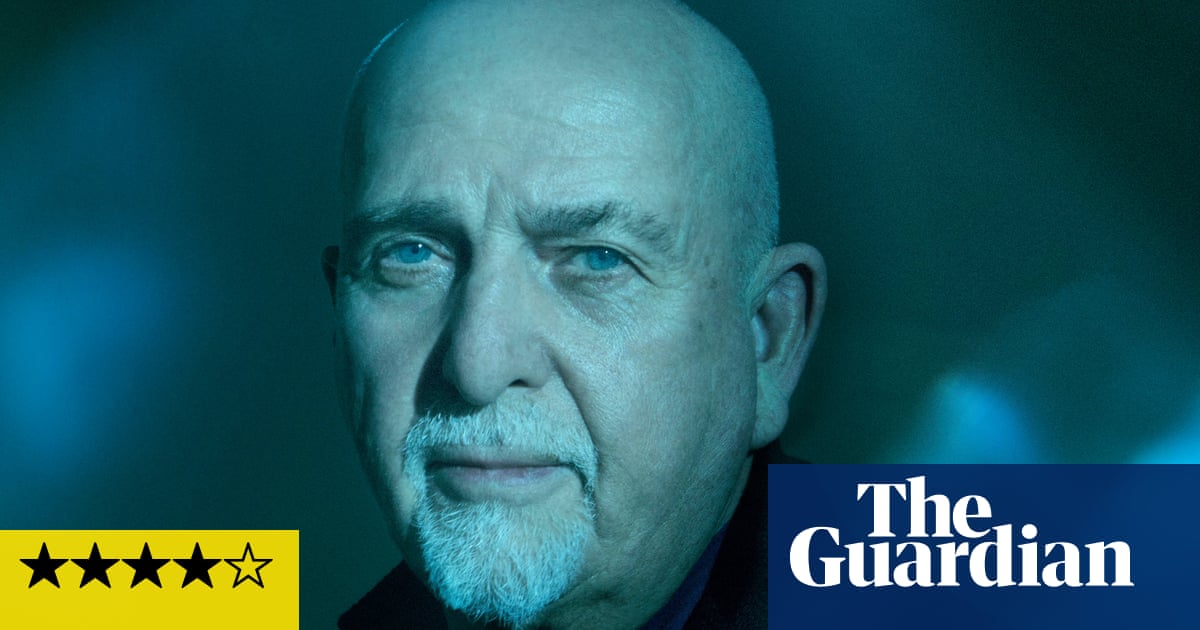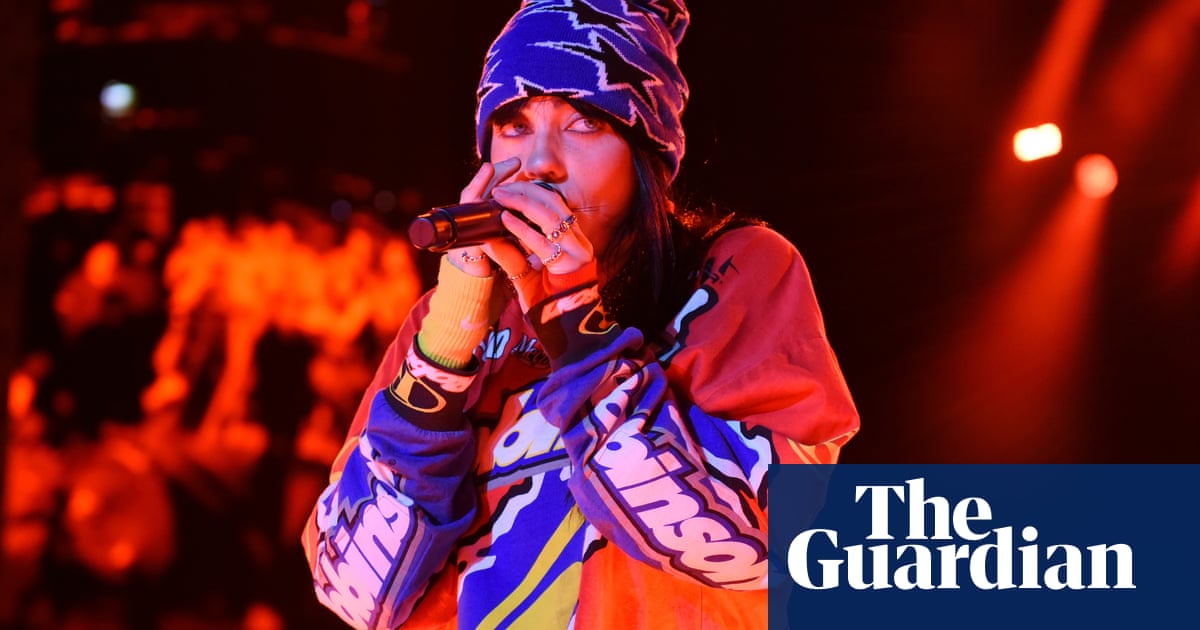
Peter Gabriel has said independent music festivals risk “losing everything” if the government does not provide an insurance scheme to cover the uncertainties of the 2021 season after the easing of lockdown was delayed from 21 June to 19 July.
Gabriel, who co-founded the global music festival Womad, due to take place in Wiltshire from 22-25 July, told the BBC Radio 4 Today Show that the organisers would have to consider cancelling without insurance.
“We’ve been faced with bankruptcy on two occasions previous and if we’re trying to secure the future of the festival, which is very important to us, and our staff, we can’t risk sinking it this year. It is a stressful time.”
Gabriel, former lead singer of the prog rock band Genesis, said that the festival industry – and particularly independent events such as his – were not asking for handouts. Womad received £250,000 in the first round of culture recovery fund (CRF) grants.
“We’d be quite happy if the government were willing to underwrite us but then to actually make money out of that,” he said, highlighting the potential for the government to profit by acting as insurance brokers. “What we need is the security because most of us can’t take the risk of losing everything once we’re committed to the setup.”
More than a quarter of music festivals scheduled to take place in the UK in 2021 were cancelled by May because of the lack of commercial or government insurance, according to figures from the Association of Independent Festivals (AIF).
Gabriel lamented the fact that sporting events can go ahead while music fans faced repeat setbacks. “If we’re doing these test events and we’re doing the Euros or Ascot, let’s give the festival sector a chance too. Maybe it’s a different sector of the population, but they deserve a go at this as well.”
The government already underwrites flood risk on homes through the industry body Flood Re, and underwrites first-time homebuyers with deposit insurance. It has also allowed some large crowds in trial events. There were 12,000 people watching horse racing at Royal Ascot, while limited crowds have been allowed in the delayed Euro 2020 football championships. The final four matches to be played at Wembley stadium, including the final on 11 July, will welcome crowds of up to 45,000.
The government has not committed to providing an indemnity scheme for festivals threatened with cancellation due to the pandemic. Commercial insurance is not available. A cross-party committee has called on the government to create such a scheme to save UK festivals from “another lost summer”.
A government spokesperson told the Guardian: “We are continuing to work flat out to support festivals and live events. Our events research programme is exploring how festivals can get back up and running safely, with a multi-day Download festival pilot this weekend, in addition to the Sefton Park pilot last month.
“Festival organisers have received more than £34m from our unprecedented Culture Recovery Fund, with more support on the way. We are aware of the wider concerns about securing indemnity cover for live events and are exploring what further support may be required when the sector is able to reopen.”
In April, Boomtown festival cancelled its August event, citing a lack of protection from the government. “For an independent event as large and complex as Boomtown, this means a huge gamble into an eight-figure sum to lose if we were to venture much further forward, and then not be able to go ahead due to Covid,” the organisers said of their decision to cancel.
Van Morrison, Frank Turner and Robert Plant were due to play at Kent’s Black Deer festival on 25-27 June, which has now been cancelled owing to the delayed reopening.
Organiser Gill Tee told the BBC that she was devastated: “It’s endless, the repercussions of this. This isn’t a quick fix. This is our suppliers who have earmarked all of their kit to come to our site and turned down other jobs; it’s the artists, who have been so amazing; and the agents. It’s a whole raft of people that have been affected by this. This is people’s lives.”
The AIF has said that, despite the 19 July reopening date, 93% of festivals could still go ahead this summer, but only if the government were to provide protection. In May, it said it had hit a “brick wall” over the issue with government, and issued a “red alert” after more than a quarter of UK festivals with a capacity of more than 5,000 had already cancelled.
“The AIF fully understands the rationale for delaying Step 4 of the lockdown roadmap,” said AIF CEO Paul Reed. “However, any measures that prevent festivals from operating fully have to be counterbalanced with effective support to ensure businesses can survive.
“For those festival organisers that still have a chance of staging events after 19 July, that support is government-backed insurance, which will give them the confidence to continue planning and commit the significant costs that entails. Ultimately, it is a political choice if the government does not support the sector with insurance at this stage, pushing festival businesses towards another cliff edge.”
Latitude festival is also due to take place shortly after the proposed lockdown easing, on 22-25 July, with headline sets from Wolf Alice, Chemical Brothers and Bombay Bicycle Club. Founder Melvin Benn, managing director of Festival Republic, said that the delayed reopening didn’t have to mean “the end of our hopes for Latitude this year”.
Benn – whose company staged the 5,000-capacity Liverpool live music test event in May – said: “We’re going to spend the next few days looking at the information and speaking to the relevant government departments to work out what it means for the festival.”
Nightclubs, which have been closed for 15 months, are particularly at risk from the delayed lockdown easing. The Night Time Industries Association (NTIA) warned that many UK nightclubs stood on a “financial cliff edge”.
NTIA research showed that one in four businesses would not survive longer than one month without further government support, and 50% no more than two months. A survey of 300 businesses showed that 54% had already spent £15k in preparation for the planned 21 July reopening, and 17.8% in excess of £40k.
Once reopening is possible, the workforce might have vanished: 33% of businesses estimated that they would lose more than 30% of staff due to the delay.
NTIA CEO Michael Kill said: “Any delay will drive confidence in the sector to a new low, culminating in workforce leaving the sector, and customers who are starved of social engagement, attending illegal unregulated events in place of businesses that are well operated, licensed and regulated.”
Kill called for the government to extend financial support and relief for nightclubs and to address the unresolved £2.6bn in commercial rent debt. In May, the NTIA warned MPs that 75% of commercial tenants in UK nightlife could face bankruptcy in the near future.
London nightclub Fabric had to cancel its 42-hour reopening party on the weekend of 25 June. Co-founder Cameron Leslie told the New York Times of his frustration: “You can only be pushed and tested so far before our entire sector can’t respond any more.”
Music Venues Trust (MVT) CEO Mark Davyd, describing live music venues more broadly, has said that without government support to mitigate the delay in reopening, “we will see mass evictions and foreclosures by landlords and creditors who ran out of patience a long time ago. The risk of business closures, widespread redundancies and the decimation of our sector is as real now as it was in April 2020.”
The MVT has issued a six-point plan for government intervention to manage the impact of extended restrictions on grassroots venues, including financial relief, extended eviction moratoriums and the immediate release of the funds for the third round of CRF payments.
The government has said it plans to announce the final round of CRF grants soon, a DCMS spokesperson told NME. Jesse Norman, the financial secretary to the Treasury, told the Today programme that an insurance programme would be a matter for discussion between festivals and the culture secretary.
“The government has already poured an enormous amount of money into the arts and culture sector,” he said. “Many parts of that sector have already benefited from the plans we have put in place, both the furlough and self-employed schemes and the specific £2bn of cultural support that we have given to that sector.”
Live music organisation Live said the delay in reopening was devastating for the industry, and could lead to the cancellation of 5,000 gigs, incurring costs of hundreds of millions of pounds.
Live CEO Greg Parmley said: “The government said the Events Research Programme would give us the evidence we needed to open safely. We have spent the last three months participating in, and paying for, full-capacity pilot events that gave us this evidence.
“To protect the future of our industry we are calling for full transparency from the government, for them to release the full report that proves how we can open safely and to work with us to give everyone the summer of music we all want.”
This weekend the Stratford-Upon-Avon festival Bigfoot will go ahead as planned, having reduced its capacity from 5,000 to 4,000 to comply with current guidelines. In order to watch performances by artists including Hot Chip and Erol Alkan, festival-goers will have to take a lateral flow test and wear masks in front of the main stage.












